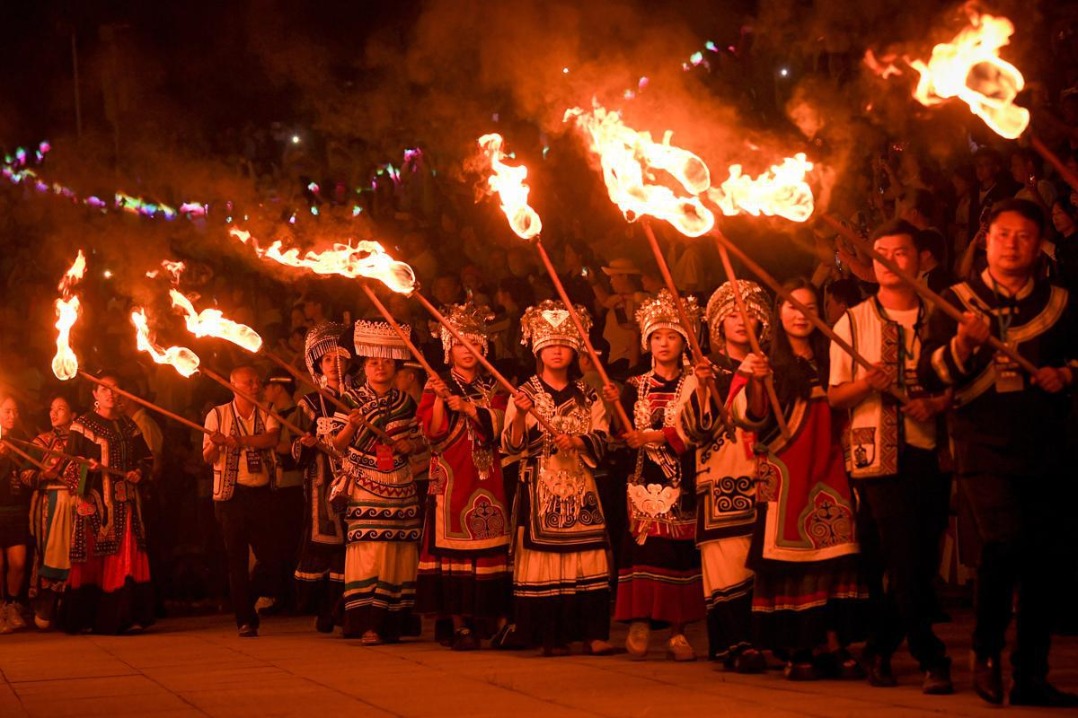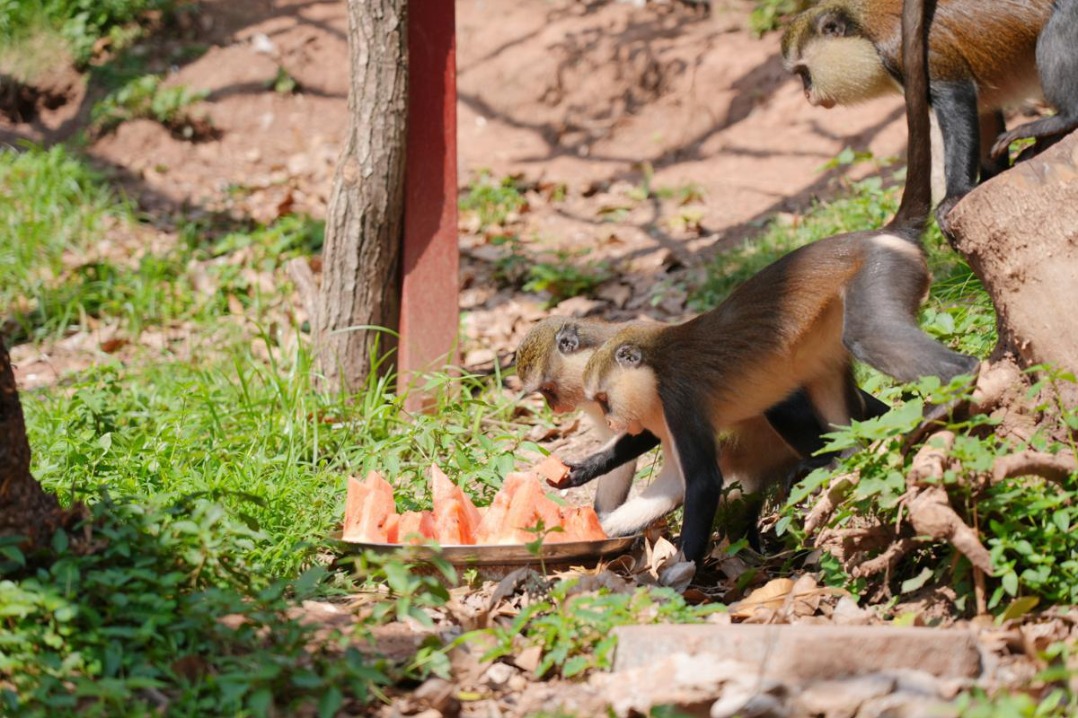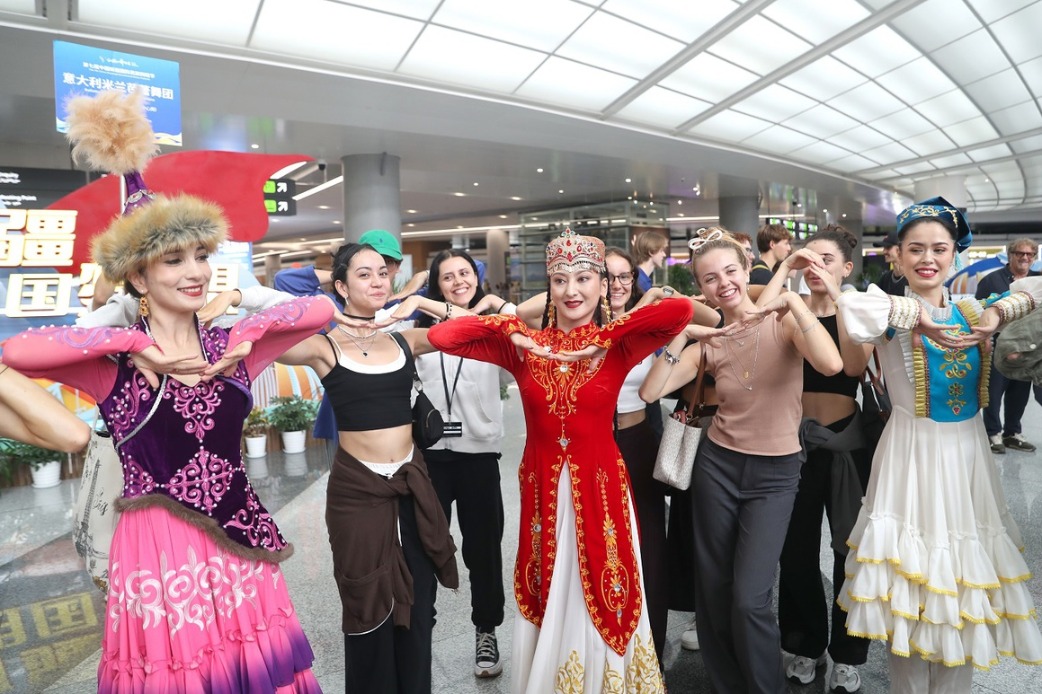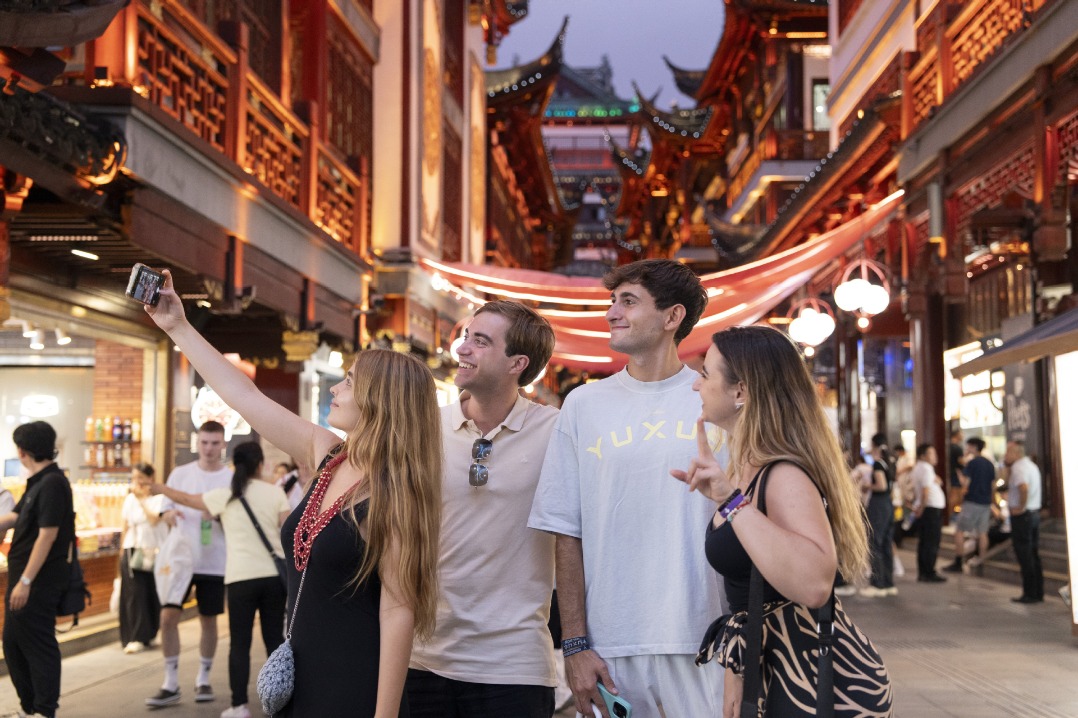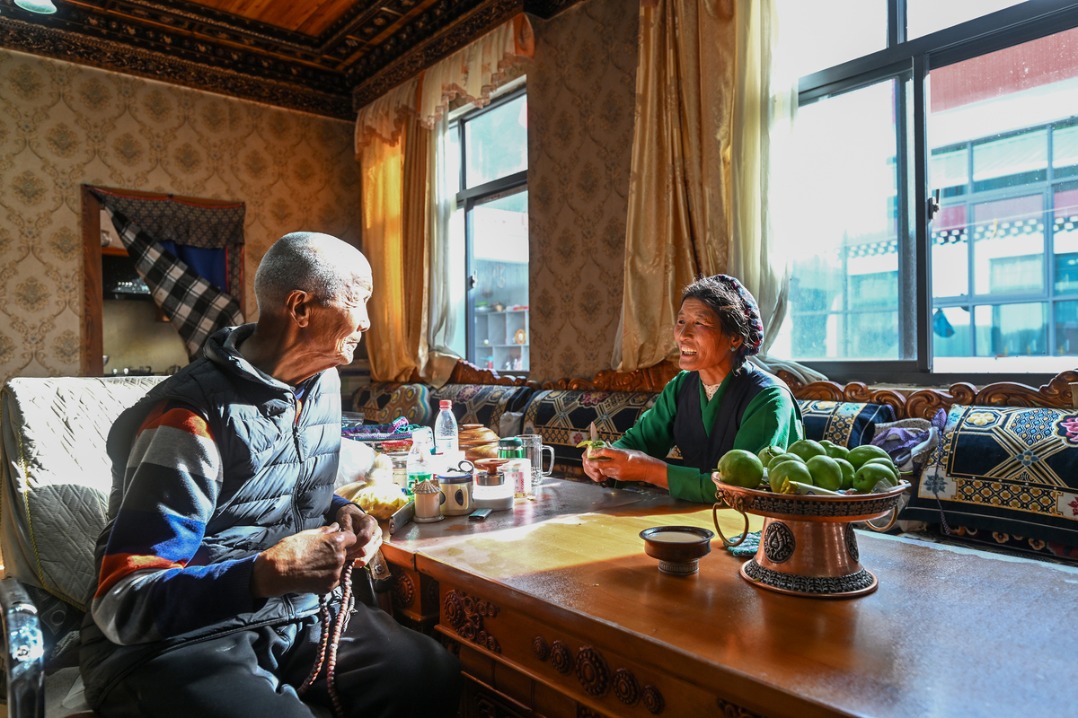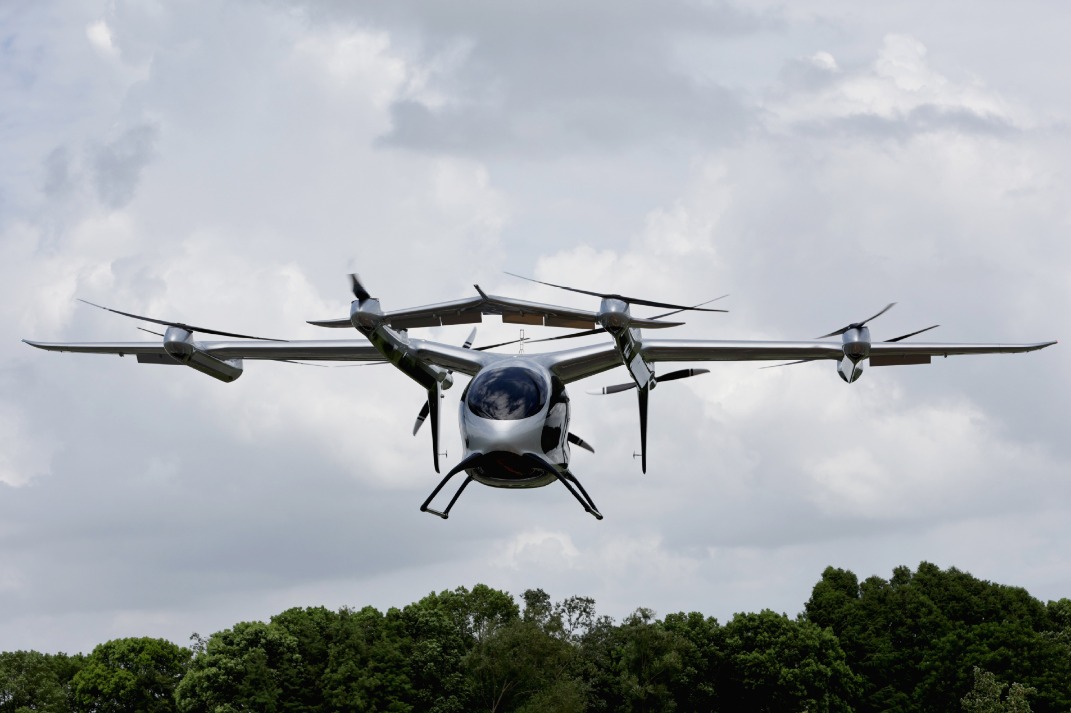Hong Kong tightens entry rules over Omicron variant

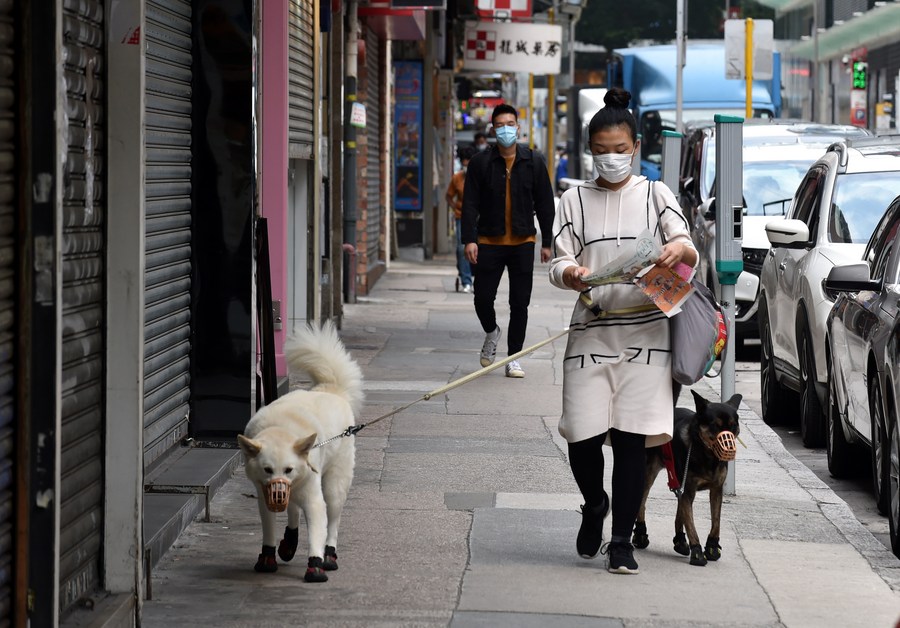
Hong Kong reported three confirmed COVID-19 cases on Sunday and tightened its quarantine rules for arrivals after recording two cases of a new variant seen first in South Africa.
Two of the new cases, all imported, involved mutant strains. The mutation test for the remaining case is pending.
Hong Kong has recorded 12,427 confirmed infections so far, but has seen no local infections in recent months-all its confirmed cases were imported.
On Thursday, Hong Kong's Centre for Health Protection announced it had found two confirmed cases whose genetic sequences belonged to a new strain of the virus, B.1.1.529, which the World Health Organization named Omicron on Friday, two days after it was discovered.
Omicron is said to carry about 50 mutations not previously seen in combination before. Thirty of the mutations are on the spike protein, which the virus uses to latch on to its host's cells.
Up to now, the Delta variant, which demonstrated over a dozen mutations, has been considered the most common mutation of the virus and has widely circulated globally with its aggressive and highly transmissible features.
One of the confirmed Omicron cases in Hong Kong involves a 36-year-old man who arrived in the city on a flight from South Africa on Nov 11. His infection was confirmed on Nov 15. The other patient is a 62-year-old man who traveled from Canada and arrived in the city on Nov 10. His infection was confirmed on Nov 20.
Both had been vaccinated before coming to Hong Kong. They lived on the same floor at the Regal Airport Hotel in rooms that faced each other.
The 12 other people living in the adjacent rooms were quarantined for 14 days at Penny's Bay Quarantine Centre in Hong Kong. No new related cases have been detected so far.
According to the center, this mutant strain is the most divergent variant yet of the COVID-19 pandemic, raising concerns that it may be associated with increased transmissibility and reinfection and be more resistant to any vaccine.
Hong Kong has banned the entry of nonresidents who have stayed within the past 21 days in the eight southern African countries: South Africa, Botswana, Eswatini, Lesotho, Malawi, Mozambique, Namibia and Zimbabwe.
Hong Kong residents arriving from these countries must be quarantined for seven days at the city's quarantine center and be tested every day for the virus.
Zhong Nanshan, China's top respiratory expert, said on Sunday that it is too soon to determine the impact of Omicron, how contagious it can be and whether it will cause more severe disease.
Speaking to media on the sidelines of a meeting of the respiratory branch of the China Alliance for Rare Diseases in Guangzhou, Guangdong province, Zhong said there will not be immediate massive actions against Omicron. Still, "we need to keep an eye on arrivals from southern African countries and regions where related cases have been found", he said.
Globally, the new strain has raised concerns. To date, European countries such as the UK, Germany, Italy and the Czech Republic have reported cases of the Omicron coronavirus variant. On Sunday, Australia confirmed two cases, both involving fully vaccinated people who arrived from southern Africa.
Israel announced on Saturday it was banning entry to all foreign visitors, making it the first country to shut its borders completely because of the mutant strain. That ban, pending government approval, will last 14 days.
Vaccine manufacturers globally also weighed in. In China, vaccine producer Sinovac Biotech said it will conduct an assessment of and research on the new variant so as to ascertain its impact on the current COVID-19 vaccines and determine whether it is necessary to develop a designated vaccine for the strain. The company said it has begun research and development of a vaccine for the Gamma and Delta strains and if necessary will accelerate development and production of new vaccines.
United States drugmaker Pfizer and BioNTech, a German biotechnology company, said an assessment of the current COVID-19 Pfizer vaccine's efficacy against Omicron is being conducted and the results will be issued within two weeks.
The two companies said in a statement that they can tweak the current vaccine to make it target the new mutant strain in six weeks and produce the new vaccine within 100 days, with the support of supervisory authorities.
- Guizhou lights up for annual Torch Festival
- China is one of the safest countries in the world: official
- Rescuers search for missing after flash floods hit Shandong
- Poverty alleviation transforms Sichuan's cliff village
- Huangmaoxia reservoir construction begins in Guangdong
- Chongqing zoo keeps animals cool to beat summer heat
















